Just as farmers’ markets and seasonal veg boxes have become staples of eco-conscious living, a new wave of designers, growers and makers are asking: what if our clothes came from the land around us, too? In the heart of the British countryside, a different kind of fashion story is unfolding. From handspun flax to antique fabrics salvaged from market stalls, bioregional fashion is about making garment production local.
A collective of visionaries across the UK are relearning traditional craft; a quiet revolution is happening and it might just be the antidote to fast fashion we desperately need.
The case for going local
“Big fashion hides its sacrifice zones from view,” says Sara Arnold, activist and co-founder of Fashion Act Now and OurCommon.Market. “It’s not just about pollution. It’s about labour exploitation, cultural erasure, and extractive systems that benefit the few at the expense of the many.”
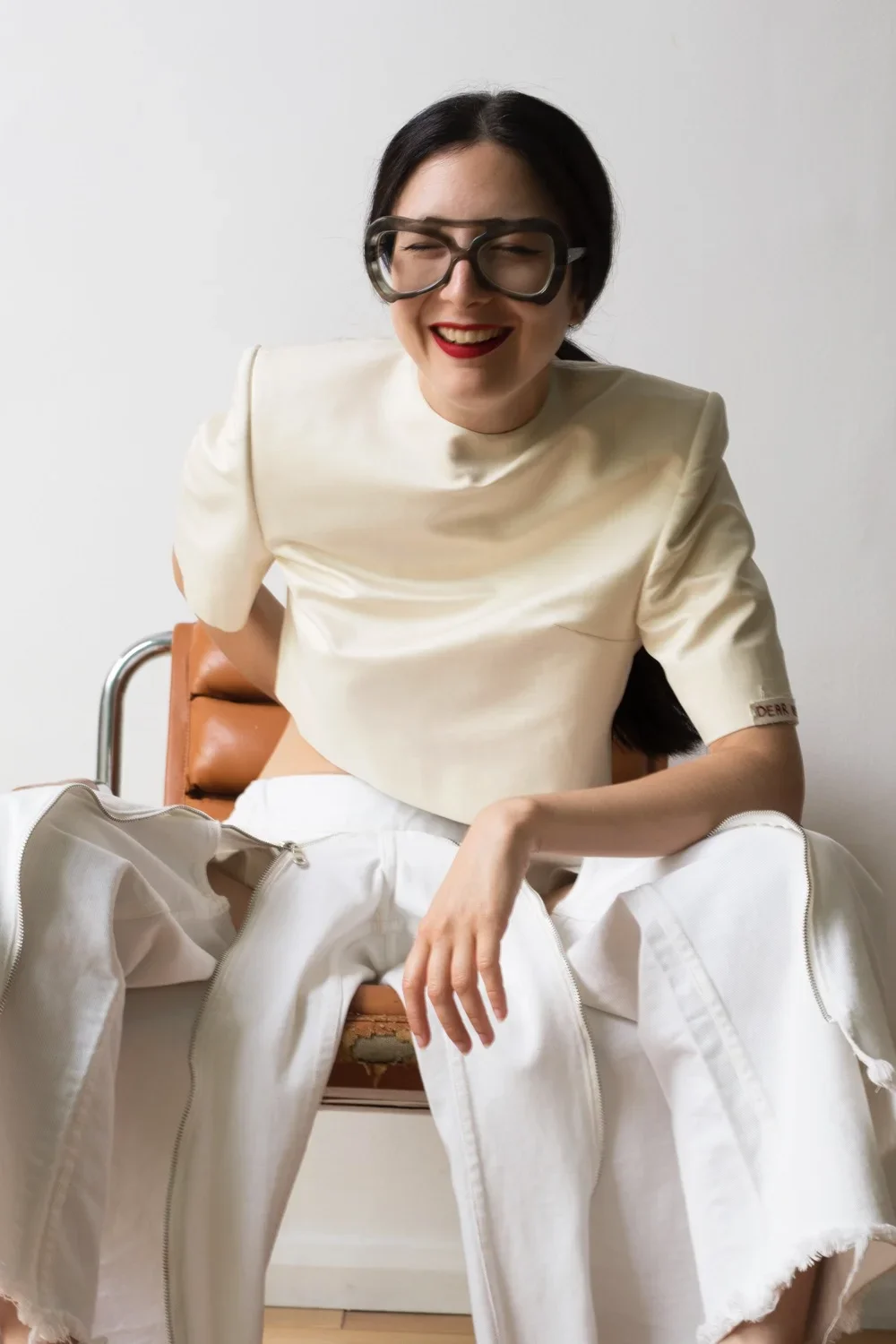
In contrast, Arnold sees bioregional fashion as a path back to connection. “It’s easy to forget that every piece of clothing starts with nature and hands,” she explains. “Bioregionalism is about living in relationship with your local environment — seeing the impacts of what we make, and creating systems that are reciprocal, regenerative, and rooted in care.”
OurCommon.Market is building visibility for community-led textile projects, from mills to mending circles. Arnold says: “We map these initiatives so people can join in, but also so we can learn from each other. This is about building commons — not just supply chains, but systems of mutual support.”
Fashion Act Now first came up with the concept of “defashioning”, a term that’s gaining traction in activist circles. Arnold explains: “Defashion means dismantling big fashion as a system, culture and paradigm. It’s not just resisting — it’s about replacing it with something else. Clothing swaps, fibre growing, shared workshops — these are all ways we reclaim our clothing cultures. It’s radical in the truest sense: decentralised, regenerative, reciprocal, respectful, fair and nurturing.”
Fantasy fabrics and textile commons
For designer Nick Evans, co-founder of Fantasy Fibre Mill, the journey began with a question familiar to many: Where does my stuff come from?
“I was already eating local, seasonal food — it made sense. This mentality spread to other domains of consumption, I started asking the same questions of my clothes” he says. That led him to the Fibershed movement, a nonprofit organisation that develops local fibre systems that protect soil and connect people to the source of their clothing, and eventually to a deep dive into British-grown flax.
“There’s so much potential in fibres like linen and wool,” he explains. “But we don’t have the infrastructure — the machines, the skills, the systems — to make local textile production viable at scale. That’s what Fantasy is about. We’re building ‘infrastructure for the textile commons.’”
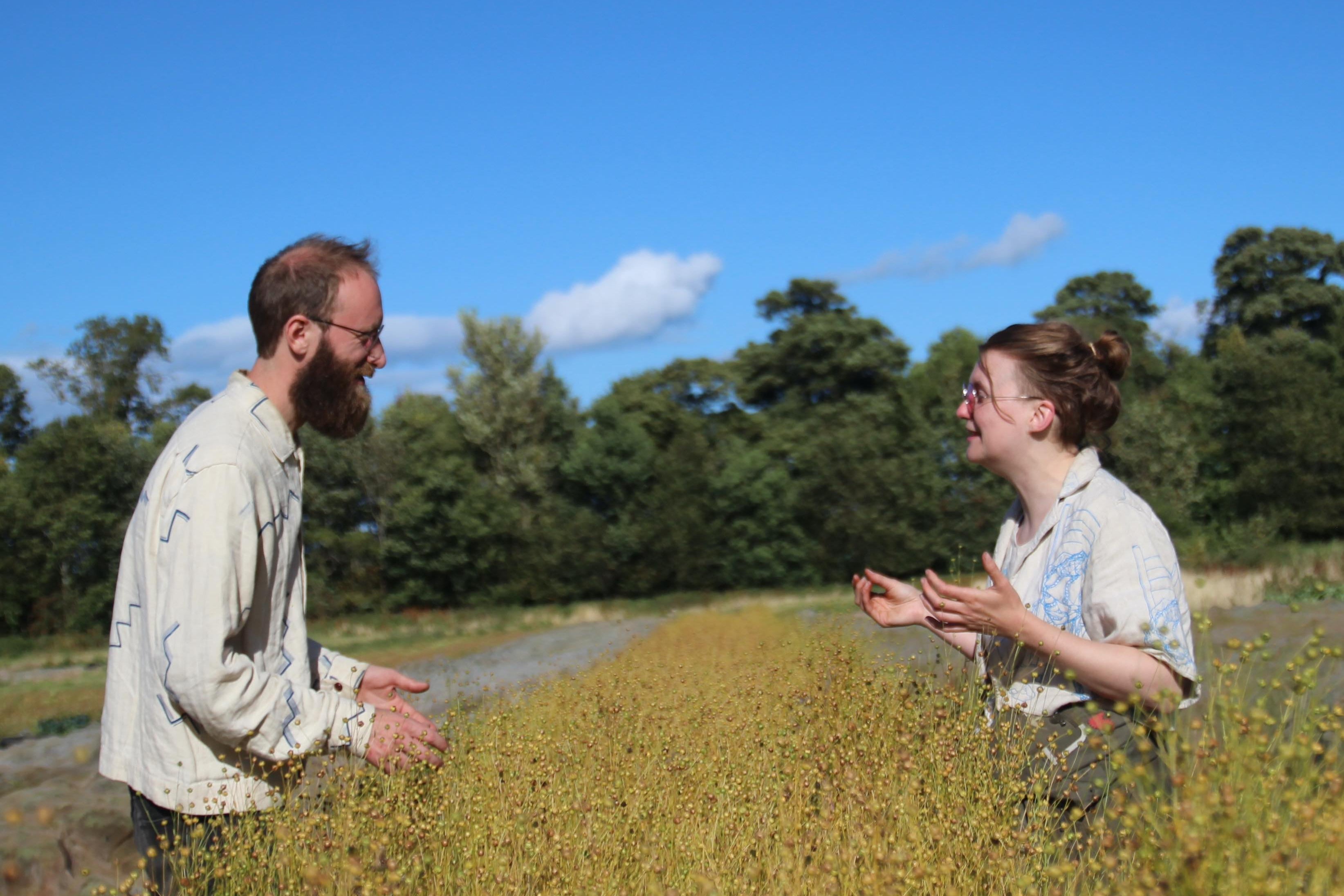
Fantasy Fibre Mill is part lab, part community. They’ve collaborated on everything from handmade jeans using UK-grown flax to research projects supplying linen scrubs to NHS hospitals. “We’re not just making textiles,” Evans adds. “We’re making it possible for others to do so, too — cheaply, locally, and collectively.”
Co-founded with flax expert Rosie Bristow, Fantasy Fibre Mill now prototypes accessible, low-cost flax and wool processing machines for communities across the UK and beyond. The mill collaborates on capsule projects — like UK-grown linen jeans with designer Brigitte Kaltenbacher. “Our model is closer to a market garden than a factory,” Evans explains. “Small, diverse, resilient. It’s a complete rethink of fashion at its foundation.”
Waste not, want not
If rural bioregionalism grows from the soil, in cities it often grows from waste.
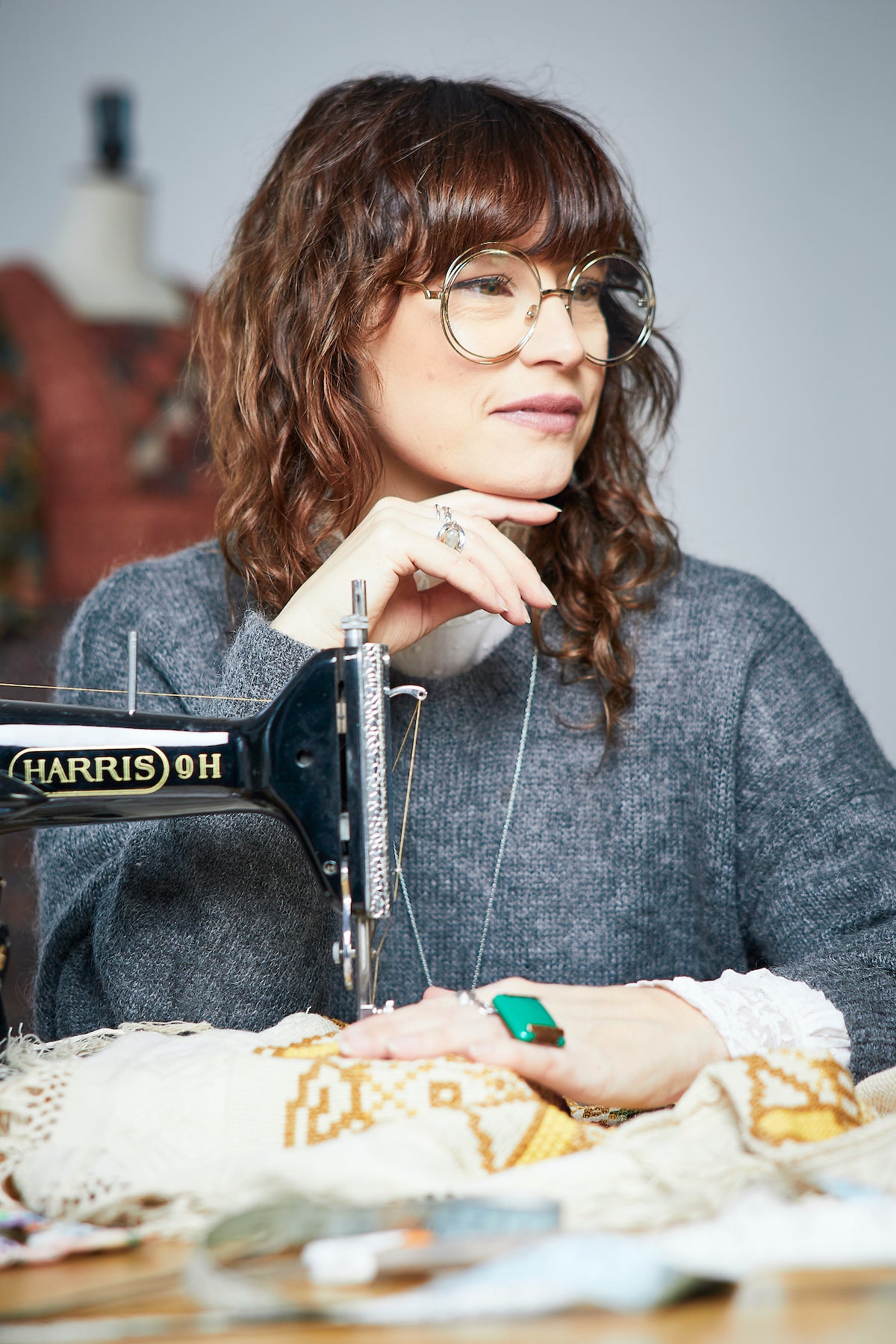
Designer Laura Basevi has built a business turning antique fabrics, embroidered tablecloths and vintage lace into dreamy, one-of-a-kind pieces. “I just never felt inspired by new fabric,” she says. “But give me a 1940s cross-stitched tablecloth? I can see a whole garment in it.”
Basevi’s Dorset studio is full of old textiles with new stories. “My friend lost her mum and she had a table cloth that belonged to her mother, we were going to turn into napkins. When I saw it I knew it would make an amazing kimono and it would be something that she could wear.”
But her work isn’t just bespoke fashion. It’s also about empowerment. Through her project Rebourne, she runs workshops where people learn to upcycle their own clothes. “You don’t need to be a designer to make something beautiful,” she says. “You just need a needle, some patience, and a good story.”
Basevi sees urban waste as part of the city’s natural fibre ecosystem. “The countryside has flax and sheep. Cities have deadstock and charity shops,” she says. “If we had textile sorting hubs like we do food co-ops, we could transform so much waste.”
A garment grown with intention
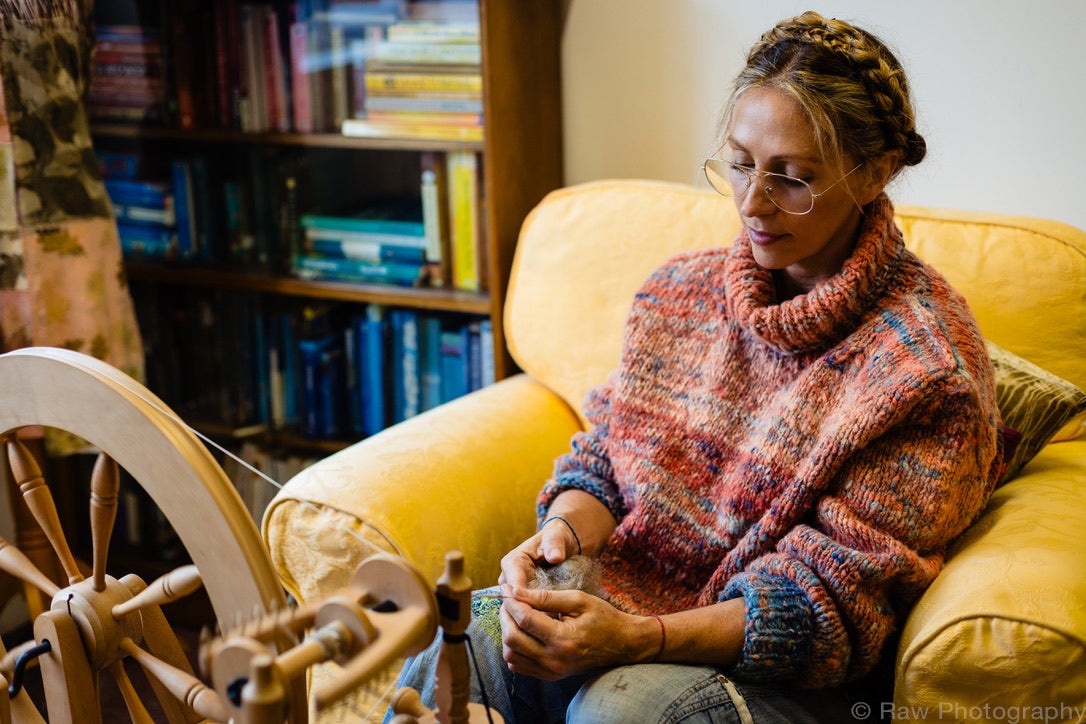
Justine Aldersey-Williams founder of Northern England Fibreshed embodies bioregional fashion. Her latest project with Patrick Grant, clothing manufacturer and Judge in the BBC’s Great British Sewing Bee, Women Grow Jeans, documents her 600-hour journey growing, spinning and sewing Britain’s only fully homegrown pair of jeans.
“I wanted to wear something I’d grown,” she says simply. “To feel that connection — to the earth, to tradition, to craft.”
The process, captured in a powerful new documentary, was about more than denim. “Today we’ve been disempowered. We’ve been educated to be consumers instead of participants, this type of project feels incredibly empowering.”
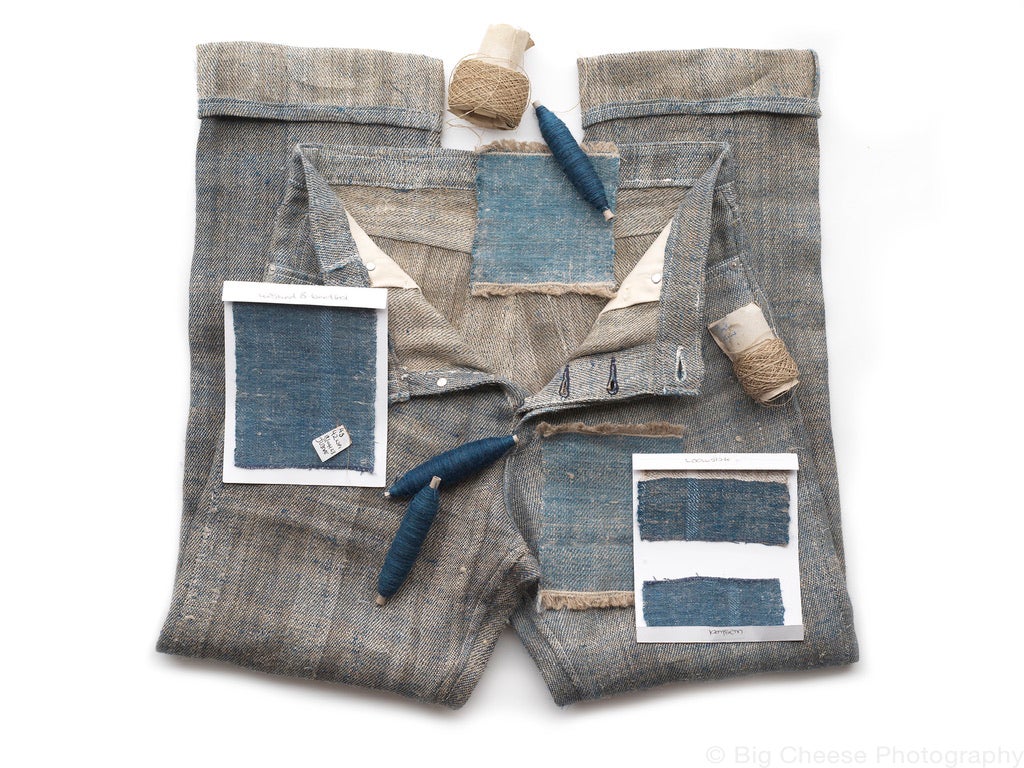
It was hard work but it’s also full of joy wrapped in community connection, not just with people but with her locality. “This is a journey, it’s a relationship and it’s a way for me to remind myself that my true nature is nature; I’m not separate, I’m completely interrelated with all the beings around me”.
So what does post-fashion look like?
According to these makers, it’s personal. It’s political. And most importantly, it’s possible.
“It’s about dignity, fairness, autonomy,” says Evans. “It doesn’t have to be beige and boring. It can be exciting and experimental — and still be good for the planet.”
“It’s about finding joy in the everyday,” says Basevi. “Wearing stories. Stitching memories. Feeling proud of what you wear because you know where it came from.”
Arnold agrees: “Bioregional fashion asks us to reimagine everything — from aesthetics to ethics. What happens when we stop dressing for profit, and start dressing for life?”
In an era of climate anxiety, fast fashion, and endless scrolling, it’s easy to feel detached from the natural world. But could that disconnection be driving our desire to consume more – especially when it comes to what we wear? We’re conducting a short survey to explore how our relationship with nature affects our fashion habits, and whether social media plays a role in shaping our choices. It takes just a few minutes, your input is completely confidential and will help provide insight into modern attitudes on sustainability and consumption.
Survey: Are we disconnected from nature? And is it fuelling fashion overconsumption?







